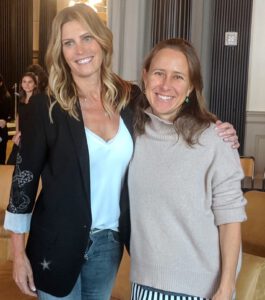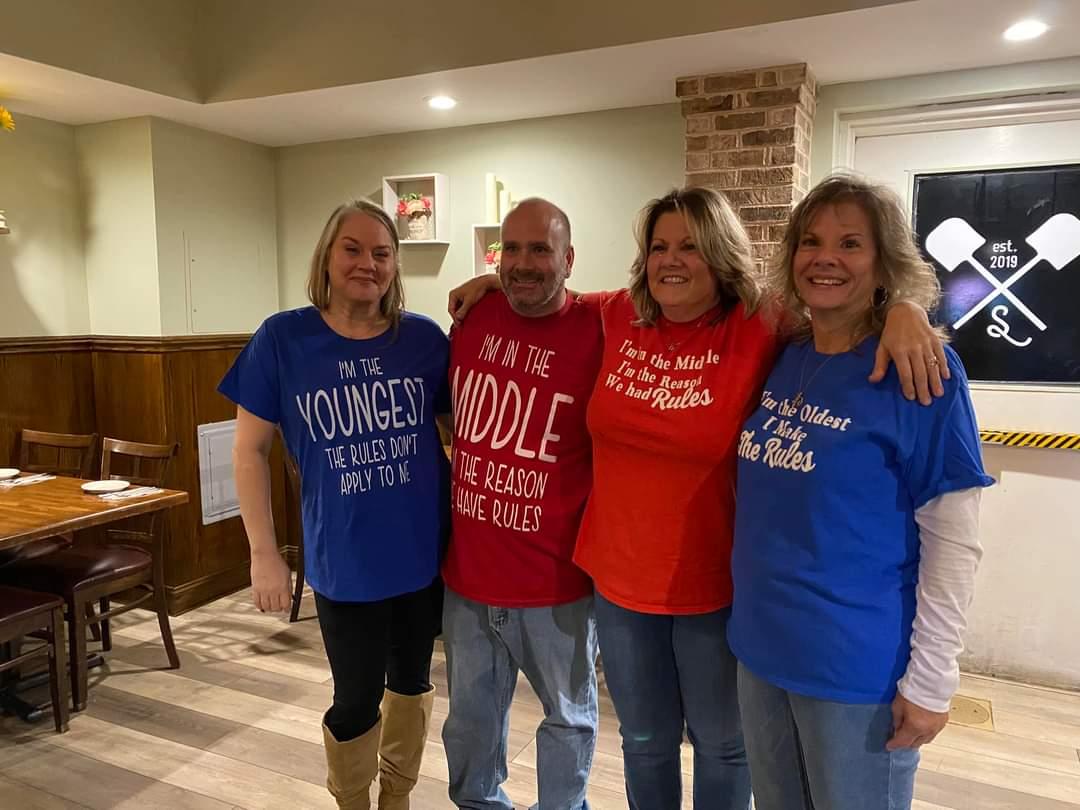*The 23andMe PGS test uses qualitative genotyping to detect select clinically relevant variants in the genomic DNA of adults from saliva for the purpose of reporting and interpreting genetic health risks and reporting carrier status. It is not intended to diagnose any disease. Your ethnicity may affect the relevance of each report and how your genetic health risk results are interpreted. Each genetic health risk report describes if a person has variants associated with a higher risk of developing a disease, but does not describe a person’s overall risk of developing the disease. The test is not intended to tell you anything about your current state of health, or to be used to make medical decisions, including whether or not you should take a medication, how much of a medication you should take, or determine any treatment. Our carrier status reports can be used to determine carrier status, but cannot determine if you have two copies of any genetic variant. These carrier reports are not intended to tell you anything about your risk for developing a disease in the future, the health of your fetus, or your newborn child’s risk of developing a particular disease later in life. For certain conditions, we provide a single report that includes information on both carrier status and genetic health risk. Warnings & Limitations: The 23andMe PGS Genetic Health Risk Report for BRCA1/BRCA2 (Selected Variants) is indicated for reporting of the 185delAG and 5382insC variants in the BRCA1 gene and the 6174delT variant in the BRCA2 gene. The report describes if a woman is at increased risk of developing breast and ovarian cancer, and if a man is at increased risk of developing breast cancer or may be at increased risk of developing prostate cancer. The three variants included in this report are most common in people of Ashkenazi Jewish descent and do not represent the majority of BRCA1/BRCA2 variants in the general population. This report does not include variants in other genes linked to hereditary cancers and the absence of variants included in this report does not rule out the presence of other genetic variants that may impact cancer risk. The PGS test is not a substitute for visits to a healthcare professional for recommended screenings or appropriate follow-up. Results should be confirmed in a clinical setting before taking any medical action. For important information and limitations regarding other genetic health risk reports and carrier status reports, [visit https://www.23andme.com/test-info/].
By Jessica Algazi
Last year was a rough one for me: four surgeries in six months, a raft of doctors’ appointments, and getting poked and prodded by the very best of medical professionals.

Jessica, left, with 23andMe’s CEO and co-founder Anne Wojcicki.
Yet I feel lucky, grateful even.
I feel like I dodged a bullet. I’d been walking around for 53 years, unaware that I carry a BRCA1 mutation putting me at a substantially increased genetic risk for breast and ovarian cancer.
I only found out by chance. On a lark, I decided to do consumer genetic testing with 23andMe. I thought I’d find some cousins, but what I found out may have saved my life.
Why I’m Writing This
I don’t say that lightly. I recently lost a very close friend to ovarian cancer. I know what an unchecked risk for cancer might have meant for me, and it sends a shiver down my spine.
Yet my sense of relief turns to dread thinking of how many others are out there who don’t know, or may never know, about their own risk until it’s too late.
That is why I’m writing this now.
Slipping through the Cracks
I’ve read a lot of criticism about delivering this kind of information directly to consumers. But the critics often miss the point and the very real experience of people like me.
Like me, there are many women who have slipped through the cracks of our current medical screening system, either because they don’t have a family history of breast or ovarian cancer. Or they do not know that they have Ashkenazi Jewish ancestry. In my case, even though I know I have Ashkenazi ancestry, that wasn’t enough to prompt my doctor to consider screening. So there are many women walking around with this risk, who, like me, would have never known of their own risk but for this test from 23andMe.
23andMe’s BRCA1/BRCA2 (Selected Variants) Report*
The test is not perfect. It’s not a breast cancer screen, and it only reports on three of the more than one thousand BRCA variants associated with higher risk. But it alerted me to a risk I wouldn’t have known of otherwise. I learned that the variant I carry puts me at a 45-85 percent risk for developing breast cancer, and conveys up to 46 percent risk for developing ovarian cancer.
If it were you, or your daughter, your mom, your best friend, wouldn’t you want them to know this information so they could do something about it?
I know that for me, learning this allowed me to work with my doctors to take action and lower my risk. That’s why seeing others minimizing or even denying the value of this test — even with its limitations — feels so misguided.
I want as many people as possible to have access to this kind of information and have the same good fortune I had.
_____________________________________________________________________
Jessica Algazi is an in-house entertainment attorney with a major motion picture studio, working and living in Los Angeles. Since learning she carried a BRCA1 mutation, she’s undergone several risk-reducing surgical procedures, including bilateral mastectomy, breast reconstruction, and bilateral salpingo-oopherectomy (i.e., removal of ovaries and fallopian tubes).




